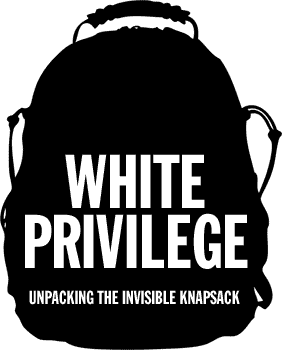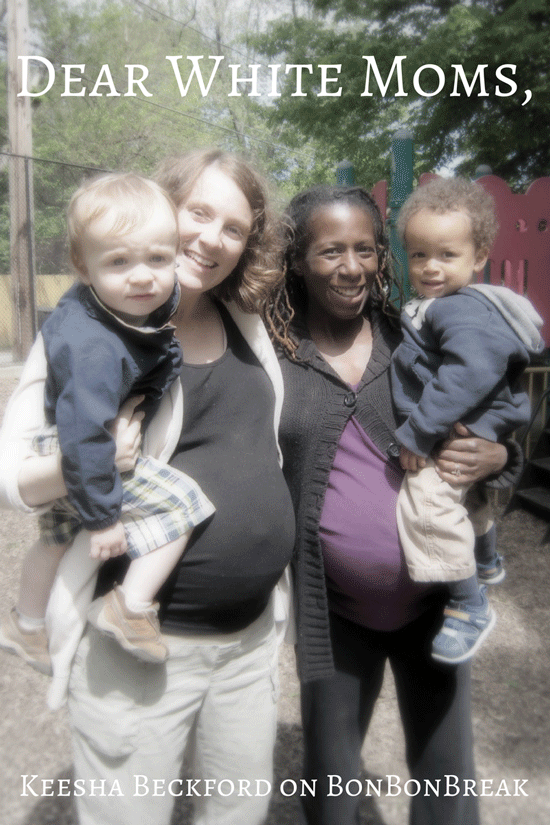When I’m packing my bag for school I make sure to have my
homework, laptop, notebooks, and pens/pencils. These are all of the tools I
believe I will need to be prepared for the day. In reality when I leave my
house I am carrying “an invisible weightless knapsack of special provisions,
maps, passports, code books, visas, clothes, tools and blank checks” (1).
Society has equipped me with these tools to be prepared for everyday life based
on my race. Why has it taken me until
now to realize the advantages I have been bringing along with me?
Peggy McIntosh’s work in “White Privilege: Unpacking an
Invisible Knapsack” acknowledges the privileges that white people have been
given but are not even fully aware of it. Things that we face in our everyday
life that may seem minute and ordinary can easily be seen as a privilege but
yet we have no idea, “whites are carefully taught not to recognize white
privilege” (1). We are provided so many things that we take for granted
because we are not aware that these privileges are not easily given to those of
a different race. McIntosh’s conditions make it evident that the white
race is well represented and prevalent in our society-whether it is through the
media, books, or even what we use to conceal an injury. And unlike other
races, we never once have to question our achievements, worry about our
opinions being heard, or fear being harassed out in public.
After the shooting of Michael
Brown, it became increasingly apparent that the privileges mentioned in
McIntosh's work were true. Parents and families across the nation
were afraid that the terrors that happened in this boy’s fatal case could come
true for their children. The Michael Brown case has affected Keesha Beckford, a
black mother, who is afraid of her child's safety. In Dear White Mom, Beckford
is pleading to her friend/fellow mother to use her white privileges to help the
future of her son. Just as McIntosh said, Beckford's friend is able to
"protect my children most of the time from people who might
night like them" (3). However, this is becoming more and more
difficult for Beckford to do for her own child. It seems as though she
can no longer provide safety for her child on her own terms, she now has to
enlist the help of the privileged.
To make a change, Beckford knows that she does not qualify
under condition #17 in McIntosh's work- "I can criticize our government
and talk about how much I fear its policies and behavior without being seen as
a cultural outsider" (3). She does not have the power so her voice
will not be heard. As Delpit said "those with power are frequently
least are of it-or least wiling to acknowledge- its existence. Those with
less power are often most aware of it." Beckford wants her friend to
speak up and not be afraid to express her opinion. She wants her to go
out and tell anyone and everyone the faults in this racial/privileged battle.
If Beckford's friend uses her power to touch upon this issue, than she will be
able to get Beckford and any other worried black mother's point across.
It's terribly troubling that someone has to be
dependent on someone else to get their point across just because they are
of a different race. The safety of their
own lives and their children’s lives should not be at risk. I never realized
until now that the way I go about my life is completely different from how
others go about theirs. The most simple things in my life can to be the most complex to others. I fall under Delpit's


I like how you compared the article to the shooting of Michael Brown. It is so sad that black families have to fear for their children's safety if someone doesn't like them just because of their skin color.
ReplyDeleteI agree with Erika's comment. It really is so sad black families have to fear their life and their children's everyday just because of skin color. I do not understand why their life has to be like this and who made it like this.
ReplyDeleteYour comparisons were really great and helped in showing the severity of the racial problems in todays society.
ReplyDeleteI agree with all of the above! I really liked how you brought in t he Michael Brown shooting to compare with the article. I couldn't even imagine being a mother in this situation, not knowing what might happen to my child everyday.
ReplyDeleteI also agree with everyone above. You did a great job connecting the reading to an issue thats happening right now.
ReplyDelete